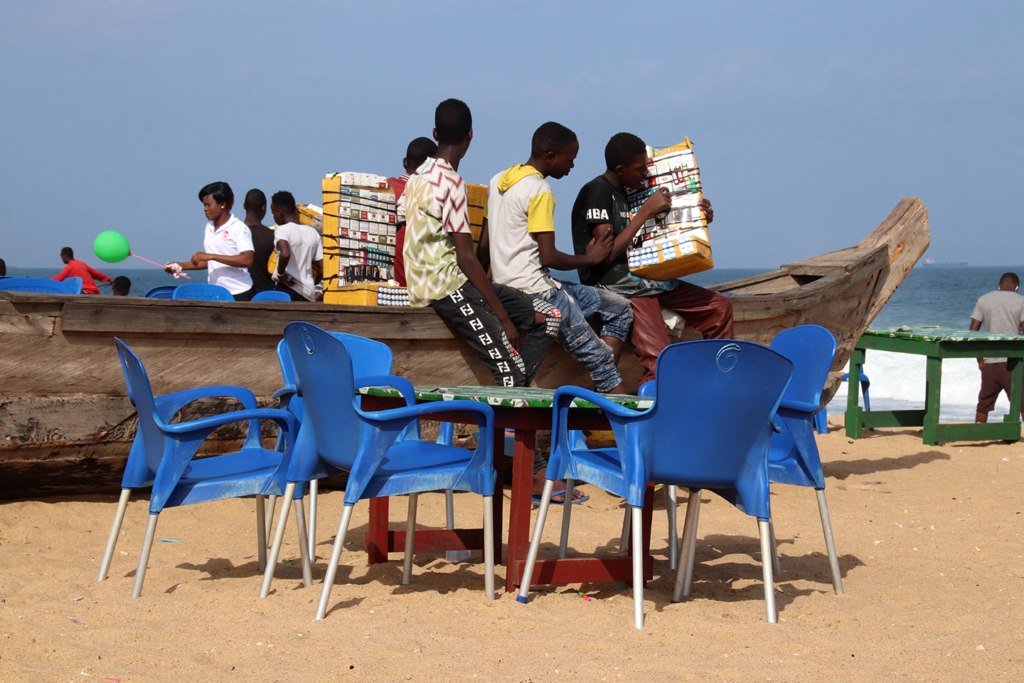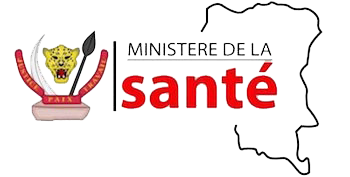
Illicit cigarette trade in the DRC
Every year, hundreds of billions of cigarettes pass from legal trade channels to the black market.
Illicit trade in tobacco products increases the number of tobacco-related deaths and reduces public revenues. This burden falls disproportionately on low- and middle-income countries, many of them in Africa. Illicit cigarette trade is considered to be a trade that is illegal or in violation of tobacco control laws. It may involve the production, smuggling, sale, or distribution of tobacco products without payment of the appropriate taxes, duties, or fees.The fact that illegal cigarettes are affordable increases smoking rates and the risk of smoking-related death. Since illicit cigarettes are generally much cheaper than their legal, fully taxed equivalents, consumption would fall if the illicit cigarette trade were brought to an end. It is estimated that governments would gain at least $31 billion USD in additional revenue, and that 160,000 lives would be saved if this illicit trade were stopped.
In response to this global concern, the World Health Organization (WHO) adopted the Protocol to Eliminate Illicit Trade in Tobacco Products under the Framework Convention on Tobacco Control (FCTC). The DRC has signed this protocol, but has not yet ratified it.
Until recently, there had been no independent studies estimating the size of the illicit cigarette market in the DRC. This page provides an overview of the prevalence of illicit cigarettes on the Congolese market, based on a study (hereafter referred to as Development Gateway’s (DG’s) DRC Illicit Cigarette Trade Study) conducted between April and June 2023.
A fact sheet on the illicit cigarette trade in the DRC can be downloaded here.
A report with the full results of the quantitative research can be found here.
The existence of an illicit cigarette trade in the DRC is well known, but the scale of the problem and its sources are unclear. DG’s DRC Illicit Cigarette Trade Study aimed to answer two key questions:
- What is the percentage of the illicit cigarette trade in the DRC?
- What are the origins and brands of illicit cigarettes sold in the DRC?
Empty cigarette packs were collected from garbage cans, street trash, fixed and mobile retailers in 32 health zones in 8 provinces. Health zones were stratified according to rural and urban location, and provinces were randomly selected from the country’s 26 provinces and divided into four strata of porosity (very high, high, moderate and low). Each cigarette pack was examined to collect and code information on the pack, including brand, tax stamp, health warning, prohibition of sale to minors, nicotine and tar content, country of origin and manufacturer’s name.
Semi-structured individual interviews were conducted with 48 key informants directly or indirectly involved in the cigarette trade in the DRC. These people were selected from border provinces (Haut-Katanga, Ituri, Kasaï-Central, Nord-Ubangui, Kwango, Kinshasa) and non-border provinces (Sankuru, Tshopo). They represented structures from the public sector, civil society and academia.
Definition of illicit cigarettes in the DRC
The DRC regulates cigarettes through legislation from the Ministry of Health and the Ministry of Finance, as shown in the table below. In 2022, the yellow Ministry of Finance tax stamps used to indicate legally imported cigarettes were replaced by green, orange and gray stamps. After June 2022, all cigarette packs bearing a yellow stamp were banned from circulation by the Ministry of Finance.
In the following sections, we present the prevalence of cigarettes that do not comply with Ministry of Health and/or Ministry of Finance regulations. First, we present the prevalence of illicit cigarettes as calculated according to Ministry of Finance tax stamp legislation. We present this analysis according to two criteria: 1) cigarette packs without tax stamps (considered illicit) and 2) cigarette packs circulating with yellow stamps (prohibited by the Ministry of Finance). We then present the results for cigarette packs that do not meet the other requirements identified by the Ministry of Health.
Requirements for cigarette packs in the DRC
In this module, we present the prevalence of illicit cigarettes in the DRC in accordance with Ministry of Finance regulations on tax stamps. 8.62% of packs collected for the study did not contain a tax stamp and 71.83% were marked with the yellow stamp which was abolished in 2022. Although 91.38% of cigarette packs were marked with a tax stamp, making them licit, only 19.54% of cigarette packs bore the appropriate color tax stamp.
Illicit cigarette packs without tax stamps
Of the 10,622 cigarette packs collected, 8.62% did not bear a tax stamp, and are therefore considered illicit. Analysis of the results of the survey of illicit cigarette trade in 8 provinces revealed the following findings:
- Ituri and Sankuru provinces had the highest percentages of illicit cigarette trade, with 31.64% and 25.9% respectively of packs bearing no tax stamps.
- The provinces of Tshopo, Haut-Katanga and Kasaï-Central have the lowest percentages of illicit cigarette trade, with 0.72%, 0.98% and 1.30% respectively.
- The other three provinces, Nord-Ubangui, Kinshasa and Kwango, had illicit cigarette trade percentages close to 5%, at 4.16%, 5.23% and 5.79% respectively.
Illicit cigarette packs by province and type of collection point
Source: RISD 2023
Cigarette packs with yellow stamps
As described above, yellow stamps were abolished in July 2022. However, 7,630 cigarette packs collected as part of this study bore a yellow stamp, 71.83% of the total. The graph below shows the distribution of cigarette packs bearing yellow stamps by province and by type of collection point.
Almost all (97.59%) cigarette packs collected in Haut-Katanga province were marked with yellow stamps, while in North-Ubangi, only 20.53% of packs were marked with these discontinued stamps. Fixed retailers accounted for the largest share of packs with the highest yellow stamp (60.58%), followed by garbage cans (21.31%). Mobile retailers had the lowest percentage (18.12%).
Cigarette packs with yellow stamps by province
Source: RISD 2023
In accordance with Article 11 of the WHO Framework Convention on Tobacco Control (FCTC), tobacco packaging must include health warnings describing the harmful effects of tobacco use. The DRC Ministry of Health has aligned the requirements for cigarettes to comply with this convention, including: 1) health warnings, 2) information on the prohibition of sale to minors, and 3) tar and nicotine levels.
a) Cigarette packs without health warnings
7.98% of the cigarette packs collected as part of this study did not contain any of the four health warnings required by the Ministry of Health. According to Ministry of Health regulations, all cigarette and cigar packs must carry at least one of the four health warnings:
“smoking is harmful to your health”, “tobacco seriously damages your health”, “smoking is highly addictive”, “be careful, smoking kills”.
Most of the packs collected during our study contained one of the first two messages listed above, less than 1% contained the third message, and no pack contained the “be careful, smoking kills” message.
This is an interesting result, and provides information on the tobacco industry’s choice of messages in the DRC.
Most common health messages on cigarette packs
Note : * The total number is 9,774, which is lower than 10,622 because 848 cigarette packs collected carried no health message.
b) Cigarette packs without a message prohibiting sales to minors

Of the 10,622 cigarette packs collected, 5.63% did not contain a message prohibiting the sale of cigarettes to minors.
c) Cigarette packs without information on levels of tar and nicotine
4.54% of cigarette packs collected did not include details of their nicotine and tar content. Analysis of the data by province shows a particularly high percentage of cigarette packs sold without listed tar and nicotine content in Ituri province (31.51%). In contrast, the provinces of Kasaï Central, Kinshasa, Kwango, Nord-Ubangi and Sankuru had less than 1% of packs without this information, and the provinces of Haut Katanga and Tshopo no packs missing this information.
Stationary retailers appear to be the main players in the distribution of cigarette packs without nicotine and tar information, since 6.11% of packs collected from these sources did not contain such information. 2.37% of packs collected from the garbage did not contain this information. All cigarette packs collected from mobile retailers included information on nicotine and tar content.
d) Cigarette packs not on the official list of brands approved by the Ministry of Health, but available on the market
The Ministry of Health’s National Drug and Tobacco Control Program (PNLCT), which leads tobacco control activities in the country, maintains a list of cigarette brands authorized for sale in the country, updated every six months. Our study showed that several unauthorized cigarette brands were still being sold. These include :
Geographical origin of illicit cigarettes
As shown in the graph below, of the 916 illicit packs with no tax stamp, Uganda and the United Arab Emirates (UAE) were the main sources. No cigarettes from the DRC or Zimbabwe lacked a tax stamp. Almost all packs from Uganda (99.26%) and more than half of those from the United Arab Emirates (52.36%) lacked a stamp and are therefore considered illicit. 100% of cigarette packs from South Sudan, although fewer in number (64 packs), were also illicit. This result indicates the complexity of the cigarette distribution and supply networks present on the DRC market. It suggests the existence of well-established channels for transporting these illicit cigarettes into the country.
Origin of illicit cigarettes in the DRC
Source: RISD 2023
Illicit cigarettes by brand and manufacturer
Of the 916 illicit cigarette packs found, 467 contained no information on their manufacturer.
71.43% of cigarette packs produced by Oriental General Trading INC, the manufacturer of Oris cigarettes, did not bear a tax stamp and were therefore considered illicit. The Oris and Supermatch brands together accounted for 92% of the illicit cigarette packs (without tax stamps) discovered in this study.
5.44% of cigarette packs found to have been manufactured by Independent Tobacco FZE, producer of the Business brand, were illegal. 99.36% of cigarette packs on which the manufacturer’s name did not appear were found to be illicit. This percentage was strongly influenced by the 52.01% of cigarette packs of the Supermatch brand, on which the manufacturer’s name did not appear.
Illicit cigarette manufacturers
Source: RISD 2023
Points of entry of tobacco products
Data for 2021 from the Direction Générale des Douanes et Accises (DGDA) on the importation of tobacco products into the DRC shows that 71.35% of tobacco products enter through the port of Matadi while 9.44% of tobacco products pass through the Kasumbalesa border.
These products are largely imported by BAT and duty-free outlets.Points of entry of tobacco products
Source: DGDA, 2021
The WHO Protocol for the Elimination of Illicit Trade in Tobacco Products represents a global solution to a global problem.
This international treaty, the first of its kind, aims to eliminate all forms of illicit trade in tobacco products through a comprehensive set of measures to be implemented by countries in cooperation with each other. The protocol is aligned with the United Nations 2030 Agenda for Sustainable Development, and more specifically with Goal 16, which aims to promote peace, justice and strong institutions. Illicit trade, often associated with organized crime, poses a major challenge to the achievement of this goal. The DRC has signed the protocol, but has yet to ratify it in parliament.Stakeholders interviewed for this study echoed the need to ratify the protocol, and also mentioned the importance of raising awareness and strengthening security to combat the illicit cigarette trade in the DRC.

